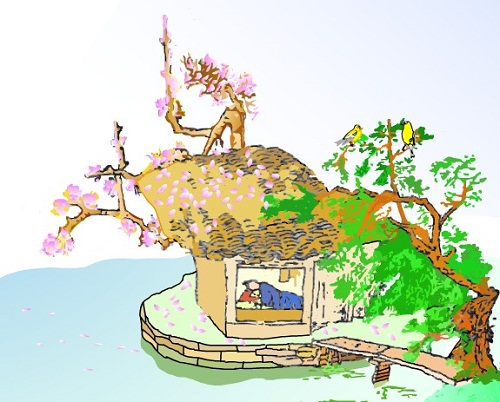- Chūn Xiǎo
春 晓
Mèng Hào Rán ( Táng )
孟浩然(唐)Chūn mián bù jué xiǎo,
春眠不觉晓,
chùchù wén tíniǎo.
处处闻啼鸟。
Yè lái fēngyǔ shēng,
夜来风雨声,
huā luò zhī duōshǎo.
花落知多少。
Explanation:
“春晓”就是春天的早晨。春天一夜酣睡,醒来时不知不觉已经天亮了,处处都可以听到悦耳动听的小鸟的鸣叫声。夜里沙沙的风雨声,想想外面不知会有多少花瓣儿被吹落在地上。
“春晓(chūnxiǎo)” refers to the morning in spring. In my deep slumber in one spring night, day has broken without being noticed. My ears come the voices of chirping everywhere when I am awakened. A vague memory reminds me of the wind and rain in the night before, and now I am wondering how many flowers are fallen down to the ground.
诗人从听觉的角度描绘了雨后春天早晨的景色,表现了春天里诗人内心的喜悦和对大自然的热爱。春天在诗人的笔下是一个鸟语花香、活灵活现生机勃的。
The poem describes spring morning scenery after the rain from the perspective of hearing,which demonstrates his innermost joy and deep love of nature.It also depicts a lively spring world with singing birds and fragrant flowers。
重点词汇 Key Words
chūn tiān
春 天
spring (n.)
hān shuì
酣 睡
sleep (n.)
yuè ěr dòng tīng
悦 耳 动 听
melodious(adj.)
míng jiào
鸣 叫
tweet (v.)
chuī luò
吹 落
fall (v.)
miáo huì
描绘
describe(v.)
xǐ yuè
喜 悦
happy (n.)
Tags: Chinese characters, Chinese poem, Learn Chinese, Poem, Spring Dawn

Recent Comments